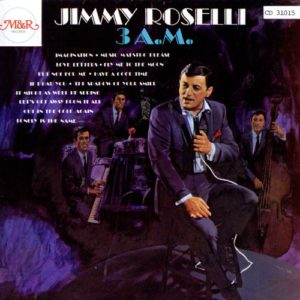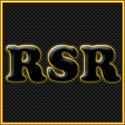We spent so much time in our last installment of “Pearce’s Picks” speaking about the notorious rivalry between singers Frank Sinatra and Jimmy Roselli and their respective associations with the underworld, that I’m left to feel that I robbed the latter singer of what deserved to be brought to light: speaking of his true musical talent. To make up for this, we devote this week’s pick to a unique album that Roselli recorded in the late 1960s, one that went somewhat unnoticed in comparison to his other recordings of the time, featuring intricate recordings of some of the great standards of the Great American Songbook.
After a few successful singles, Roselli began his true recording career with a triple succession of albums for New Jersey local Lenox (later RIC) Records in the early 1960s, beginning with “Showcase: Jimmy Roselli,” followed by “This Heart of Mine” and “Love and Life, Italian Style.” The latter two albums were reissued when a contract was inked between Roselli and United Artists Records in 1964, with “This Heart of Mine” reappearing in record stores under the title of “Mala Femmena,” after the hit single of a Neapolitan song that resulted from the musical program, a tune that would even be prominently featured some years later in the 1973 Martin Scorsese film “Mean Streets”.
Other recordings would follow, including the successful albums “The Italian Album,” “Core Napulitano,” “There Must Be A Way,” “Let Me Sing And I’m Happy,” as well as the live recording of his smash September 1966 stand at Carnegie Hall, “Jimmy Roselli: Sold Out.” Although the material differed in style from album to album, one common thread existed throughout all of the music: the presence of a large orchestra, providing exquisite symphonic backing to the thunder of Roselli’s impressive tenor vocals.
As the days and weeks turned to the year 1968, Roselli reentered the UA studios in New York to craft a new record for release. At the conductor’s podium was George Siravo, a vastly underrated arranger who had worked extensively with Frank Sinatra during the later years of Sinatra’s association with Columbia Records, as well as having scored several charts for the blue eyed singer’s first album with Capitol Records, “Songs For Young Lovers.” Siravo had arranged a wealth of Roselli’s orchestrations since he began a few years before at Lenox, among them the hit “Mala Femmena”. This time, he would reverse gears by featuring an instrumental sound behind Roselli quite unlike anything he and the singer had done before. The resulting disc would be called “3. A.M.”
A fine collection of “after hours” songs somewhat in the vein of Sinatra’s “In The Wee Small Hours,” the big difference here is that, while Sinatra’s recording focuses on the sadness and despair of an unsure relationship, Roselli’s leans more toward the mystery and silhouette. The instrumentation is whittled down to less than a dozen instruments, with a rhythm section joined by string quartet as well as a few intricate soloists, primarily, Phil Bodner on reeds as well as the soaring Mel Davis on trumpet. In terms of group size, this was a one-off for Roselli, making the listening experience all the more unique.
The opening tune, “Have A Good Time,” sets the mood well, with reeds and guitar playing the initial riff accompanied by the melancholy of the strings, before Roselli enters with his vocal, the first word, a forceful “goodbye,” making clear the theme of the collection. When comparing to Sinatra’s “Wee Small Hours,” while Sinatra’s collection features a man confronting and trying (hopelessly) to come to terms with lost love, Roselli’s collection features a man actually coming to terms with the predicament, and reflecting on the happy times, wanting the mate to be happy in her new life while at the same time, displaying a gentle undertow of angst.
The second tune, “The Shadow of Your Smile,” is perhaps one of the finest works of Roselli’s career, with Mel Davis’ trumpet wailing in tandem with Roselli on the second half of the song in a truly memorable vocal performance. Other noteworthy moments on the album include a gentle bossa nova/light swing treatment of “Fly Me To The Moon,” a neat “It Might As Well Be Spring,” not to mention a beautiful reading of the seldom performed ballad “Lonely Is The Name.”
The album was later reissued on Roselli’s M&R Records. Its digital release on compact disc, still available from M&R, is the best way to listen to the album, but if you’re a vinyl collector, the original UA record, still available second hand from most retailers, is a worthy addition to your jazz and standards collection. Highly recommended. 5/5.
Until next time, music lovers!
Jerry Pearce is an amateur singer in the vein of Frank Sinatra, Perry Como, and Dick Haymes and has released two discs of standards music, Crossroads in 2010, and One Summer Night in 2016. Samples of his music can be heard on his YouTube Channel. To purchase his CDs use the form box below.
[si-contact-form form=’3′]

 March 1st, 2017
March 1st, 2017  CEO
CEO 
 Posted in
Posted in  Tags:
Tags: 



